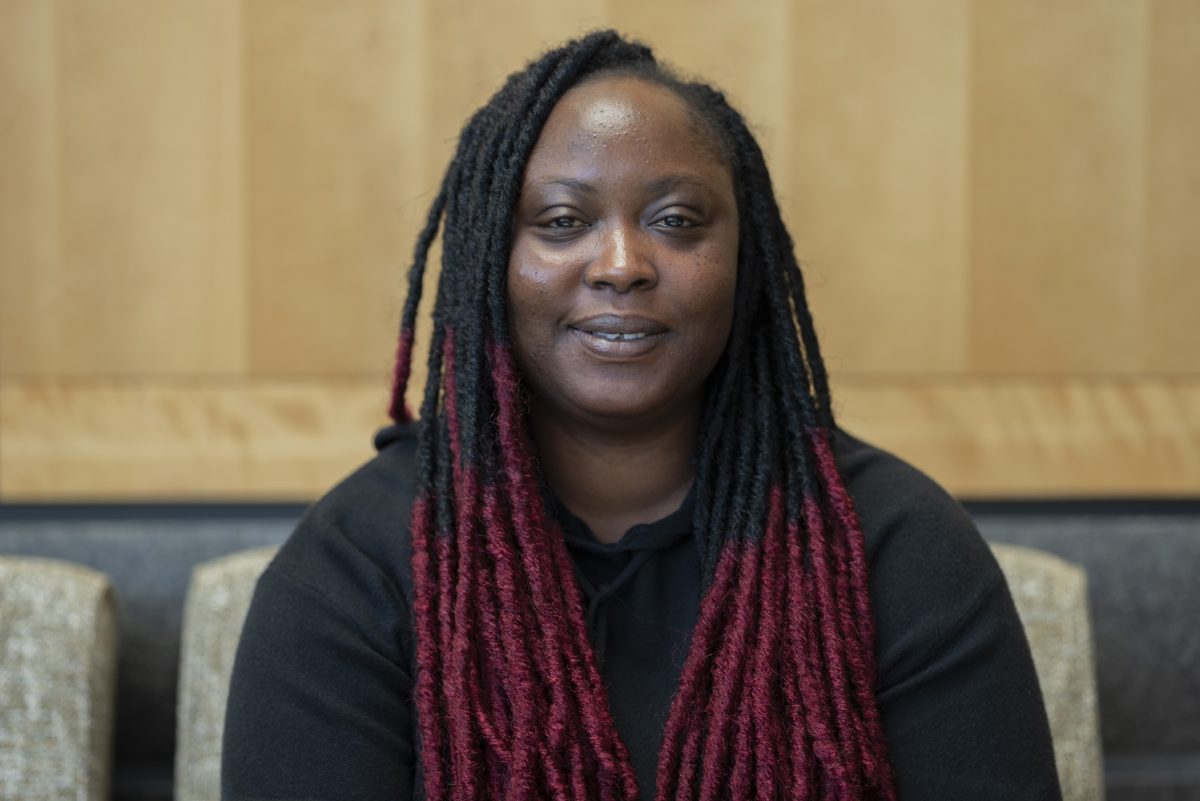Nigerian scholar Osamamen Oba Eduviere has been researching the African immigrant experience in Iowa as a part of the University of Iowa’s “Homebuilding in the Heartland” study.
Homebuilding in the Heartland, started by Brady G’sell, is a community-based participatory model of engagement that aims to research the needs of African women who have immigrated to Iowa in their efforts to create wellbeing for themselves and their families.
The process involves interviewing women who originate from the African continent and now live in the state of Iowa, aiming to learn about their experiences and ask for their input about how Iowa can become a more welcoming state for them and the communities they are a part of.
G’sell brought in Eduviere to help with the project. Eduviere is a Ph.D. student in the Department of Religious Studies at the University of Iowa and is originally from Nigeria. She moved to the U.S. in 2021, where she was immediately welcomed by the UI community.
“I wanted to support Osamamen, she is doing so much incredible work,” G’sell said. “Really, Homebuilding in the Heartland barely scrapes the surface.”
One of the program’s biggest findings so far has been that African immigrants in Iowa are underrepresented. This led the team to strive to be able to give them visibility to be able to know what exactly their problems are.
Homebuilding in the Heartland aims to provide a way for African Immigrants to see their own stories and others like them in a place like Iowa, G’sell said.
A trend that Eduviere has noticed throughout her work has been that most African immigrants do not directly come to Iowa from their country. Many people she talked to had heard from family members or other African friends that Iowa had been very welcoming and a good place to stay.
Eduviere realized that for most immigrants, Iowa wasn’t their first destination in America, but it was often the last, becoming where they settled down.
Most of the people researched are refugees and people that have cultural background in regions in Africa. Those who come to the U.S. most times go to the International Organization for Migration, and then that organization brings them to the U.S.
Throughout her two years working on Homebuilding in the Heartland, one aspect has continuously surprised Eduviere.
“What has shocked me is the human beings’ resilience,” Eduviere said. “Many people have been able to come to the strange land of the U.S. with no family or friends and still be positive about life.”
She also said that even in a predominantly white state, many of these immigrants have been able to create community among themselves and thrive. The experience has even made her look at Iowa as a more welcoming place, Eduviere said.
However, making observations is just the start. Eduviere said the satisfying thing about research is to see how you move from research into practice and see how it translates into the everyday lives of the people.
She is excited to see how policymakers can make use of this research and work to aid underrepresented people. This research won’t just be beneficial to Iowa, but all governments can see how to channel the findings into helping and providing for these immigrants.
G’sell and Eduviere are not the only people involved in Homebuilding in the Heartland. Amy Weismann, the assistant director of the UI’s Center for Human Rights, has also worked with the two women on this project.
“It’s been such a tremendous pleasure to work with both Brady and Osamamen,” Weismann said. “We’re each bringing our respective lenses and training and questions to bear, and I think that’s made it a much more engaging and robust undertaking as a result.”



